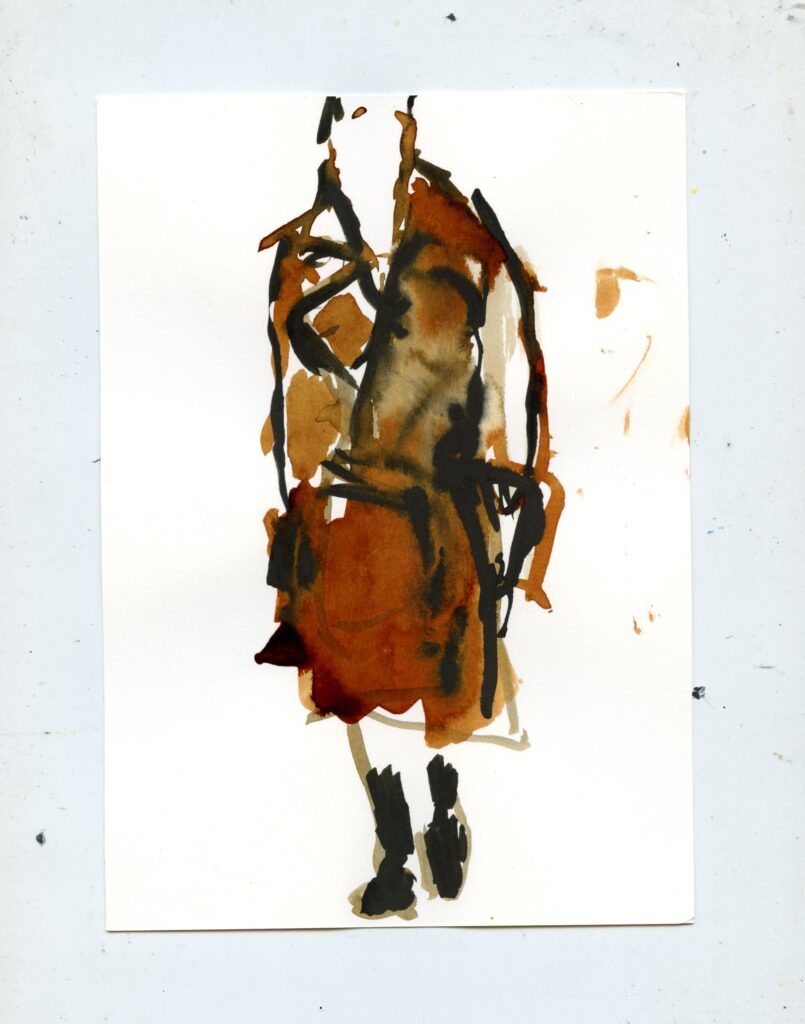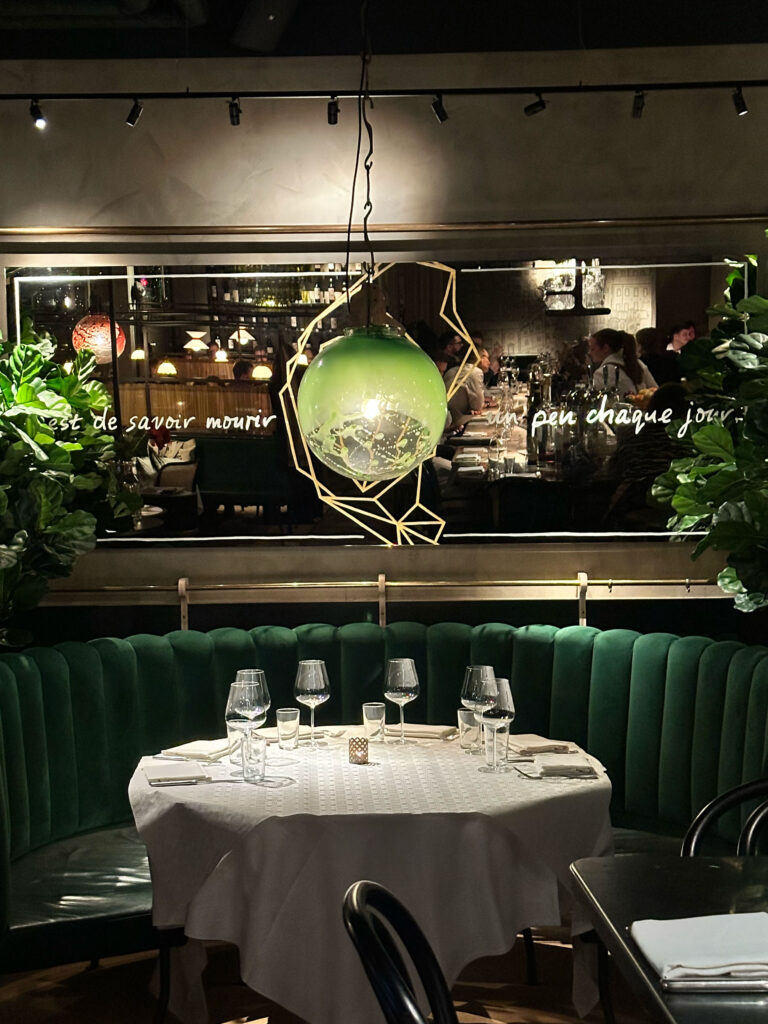AKOKO: A Journey Beyond Borders
Text Jahwanna Berglund
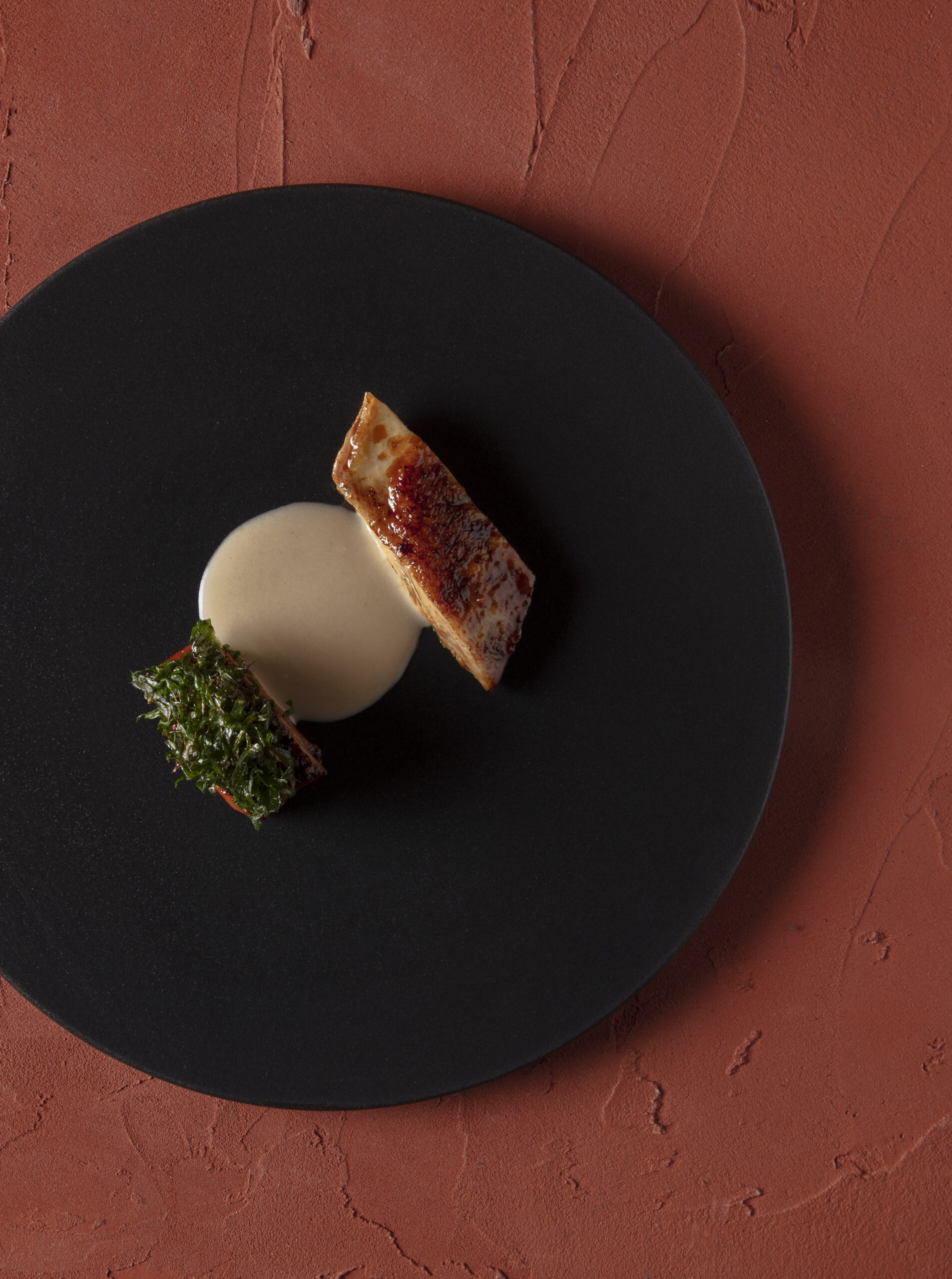
Seated just in front of but slightly separate from the quiet choreography of the open kitchen, I knew I was in for a taste ride I had never experienced before. There’s something admiring about the way each dish is completed at Akoko, like watching a ceremony unfold. As I sat watching, I felt the curiosity build: What does West Africa taste like when interpreted through the lens of fine dining, without losing its soul?
Coming from Sweden, where finding authentic African cuisine is rare and finding it at this level, near impossible, I had no real blueprint for what to expect. My ideas of African food were mostly shaped by home-style stews, market food, or community meals. But Akoko didn’t aim to replace that familiarity. It aimed to honour it and amplify it. In doing so, it expanded my understanding of what African food can be.
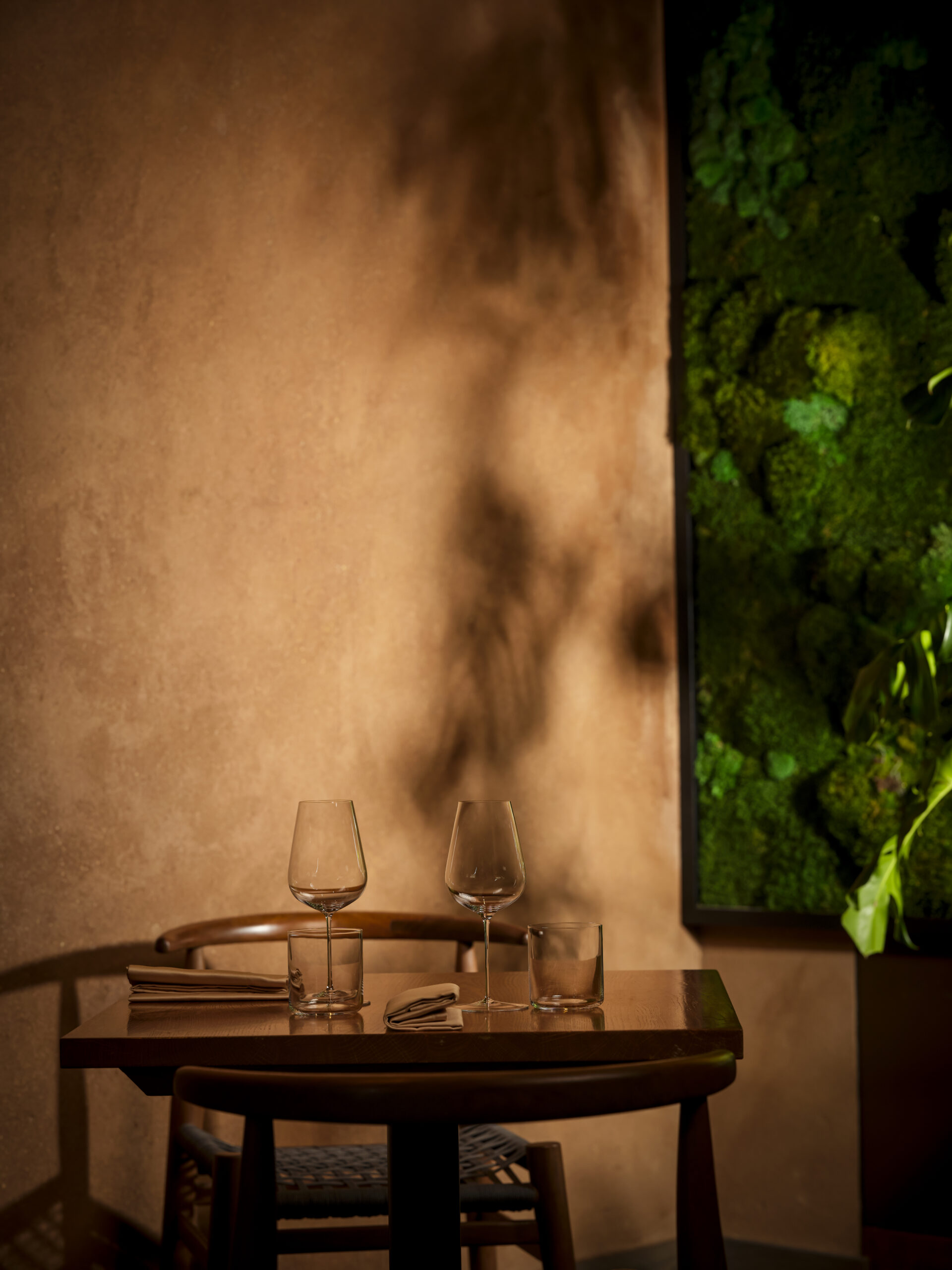
You don’t simply enter Akoko, you step out of London entirely and into founder Aji Akokomi’s deeply personal vision. Nestled in the heart of Fitzrovia, the Michelin-starred restaurant offers more than a meal. It’s a sensory odyssey, one that reaches back to ancestry and forward to possibility, stitched together with fire, fermentation, and finesse.
The space is warm and grounded. Earth-toned walls, hand-carved wooden accents, woven textures, everything seems chosen not to impress, but to belong. There’s no performative spectacle here. No heavy-handed branding. Just an atmosphere that says, “you’re welcome here. Stay a while”.
And so I did.

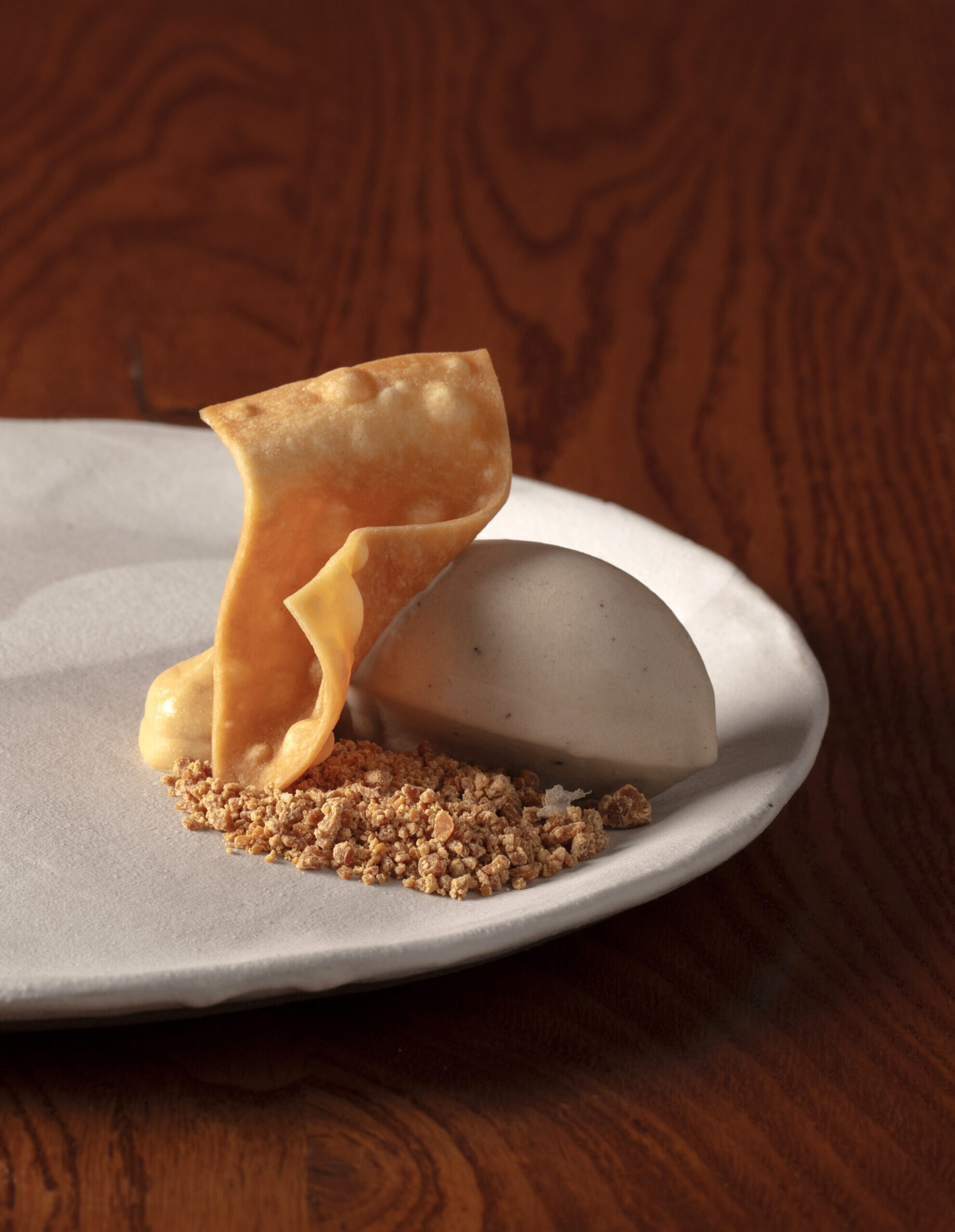
When thinking of African cuisine, my mind immediately drifts to Jollof rice, vivid, tomato-rich, warmly spiced. It’s a dish synonymous with home, celebration, rivalry even (ask a Nigerian and a Ghanaian who does it better). So when Akoko’s version arrives, I brace myself. How do you reinterpret something so iconic and so personal, for a Michelin-star audience?
The answer comes in a shallow, artfully plated bowl. The rice is perfect: smoky from the stock, layered in depth, and full of that unmistakable Jollof intensity. But here, it’s part of a larger symphony paired, unexpectedly and yet seamlessly, with a bold red wine from South Africa’s first female wine producer. The pairing is more than clever, it’s poetic. It marks one of the many moments when I realise: every detail at Akoko is a continuation of a larger story.
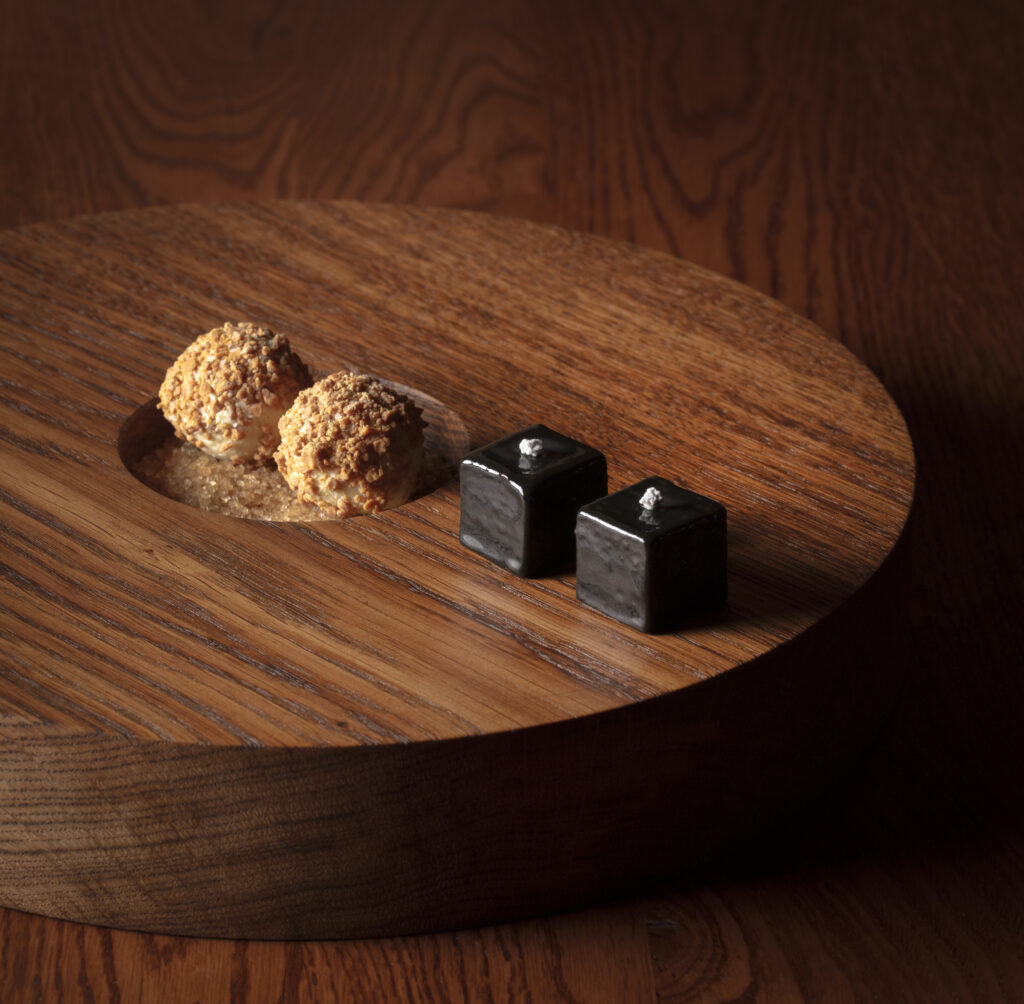
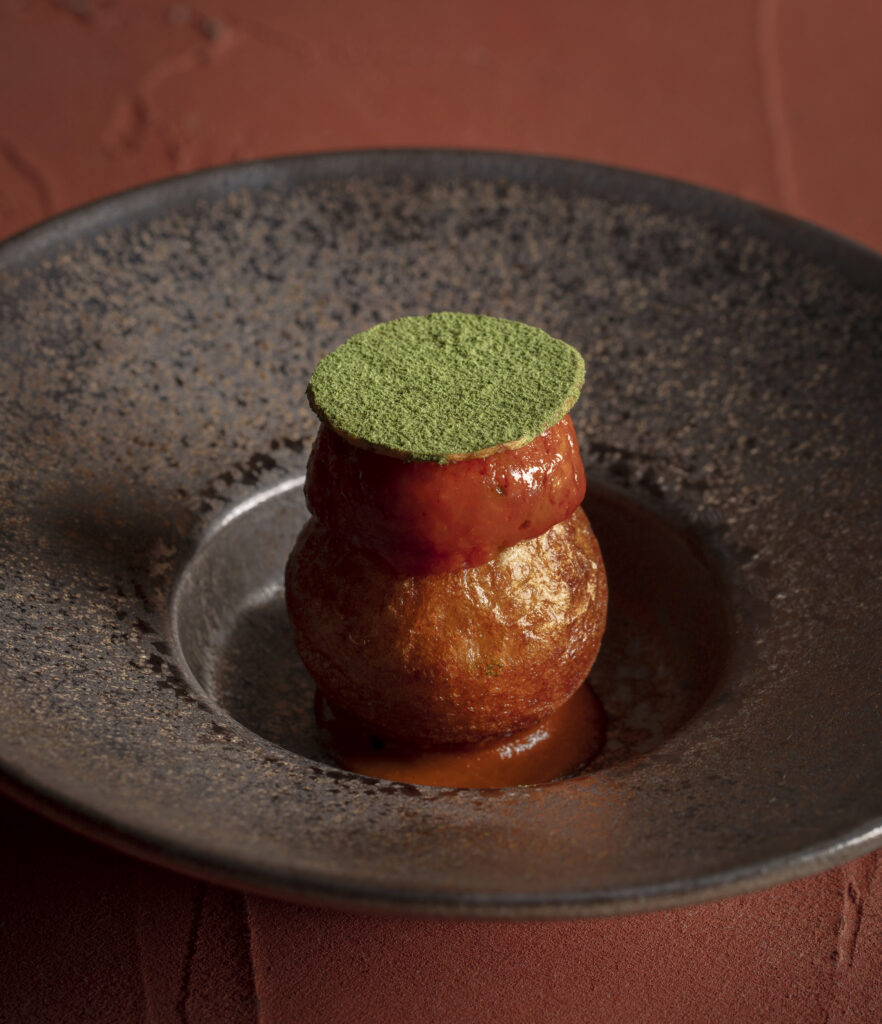
The tasting menu unfolds like a landscape. From the northern Sahel to the coastlines of Ghana and Nigeria, each course acts as a geographic and emotional waypoint.
Cashew cream made from nuts soaked in goat’s milk for two days is one of those quiet, understated showstoppers. It’s tangy, nutty, and smooth and almost meditative in flavour. Then comes grilled plantain dressed with a scotch bonnet kick that doesn’t scream heat but rather hums beneath the sweetness. These aren’t dishes trying to be exotic. They’re elemental, anchored by respect for the ingredient, the technique, and the memory behind them.
And just when I think I understand the rhythm of the menu, caviar arrives. But not as an indulgent afterthought.Nestled in fermented maize, it has smokiness, salt, and a subtle funk that connects it back to traditional fermentation practices found across West Africa. It feels both luxurious and deeply rooted, something I didn’t know was possible until I tasted it.
Then dessert arrives and shifts the emotional tempo. Nutmeg ice cream, a single scoop that is soft, aromatic, and gently spiced becomes a closing act that lingers like a lullaby. It’s comforting, ancient, and yet completely new to me. It tastes like memory and imagination at once.
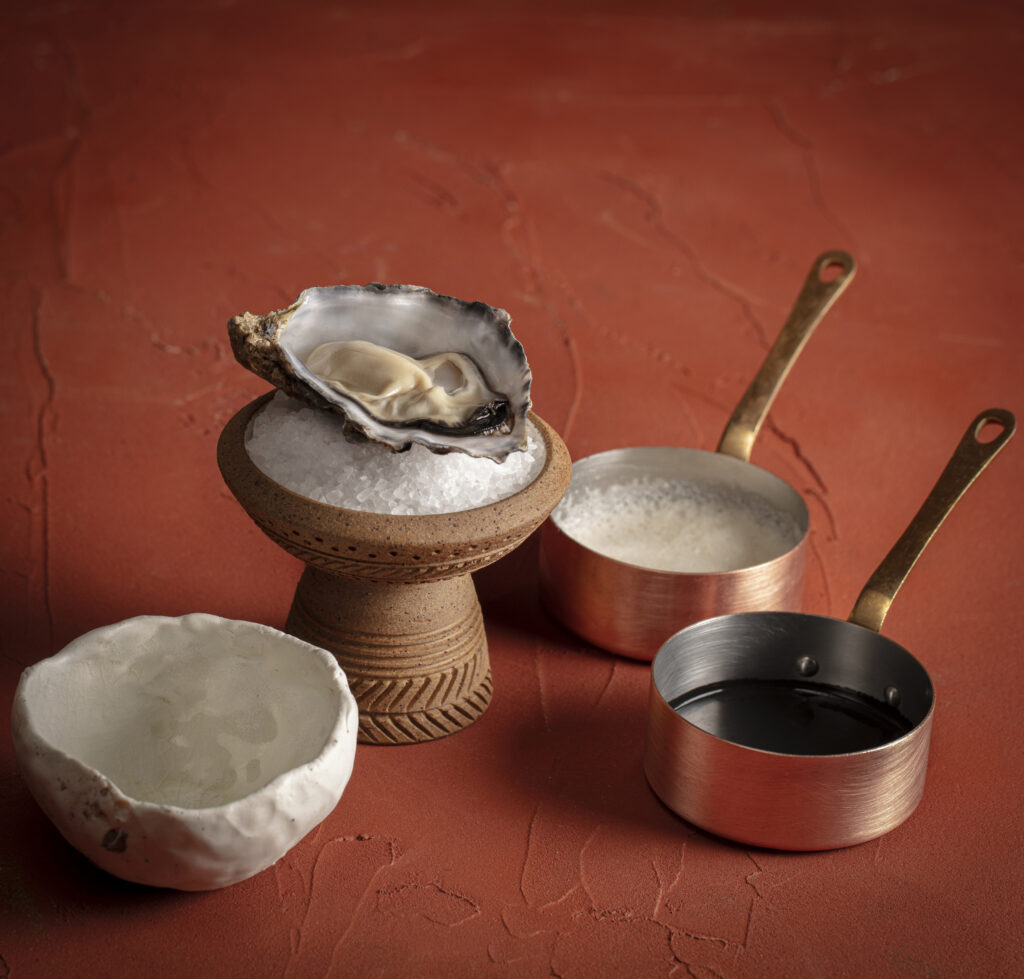
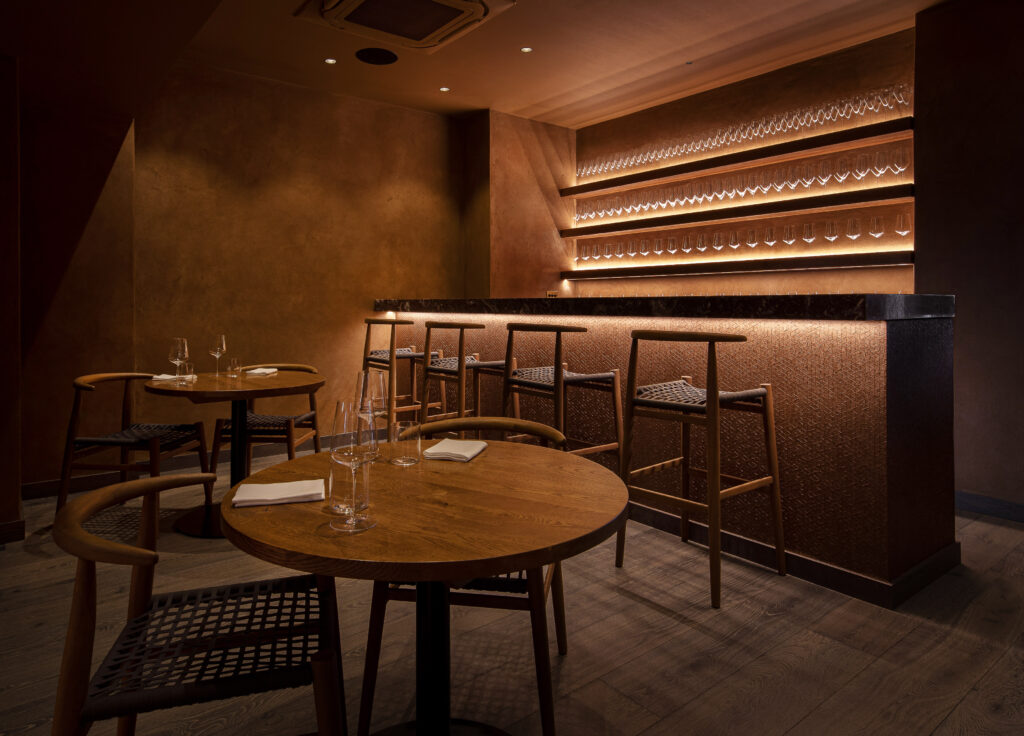
What Akoko does is rare. It doesn’t translate African food into something more “palatable” for a Western audience. It trusts the food. It lets the ingredients speak. It treats elements like ogiri, suya spice, grains of selim, and smoked pepper with the same reverence French kitchens reserve for truffles and aged cheeses. Under the guidance of head chef Mutaro Balde, the kitchen manages to bridge fine dining and cultural depth with sincerity, not spectacle.
For me, Akoko was more than a culinary experience. It was an emotional one. It reminded me that food is a kind of language that travels across borders, generations, and senses. And if you listen closely, you realise you’re not just eating, you’re being told a story.
Akoko doesn’t whisper that story. It sings it.


